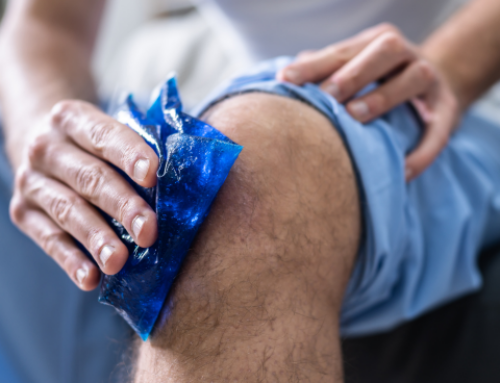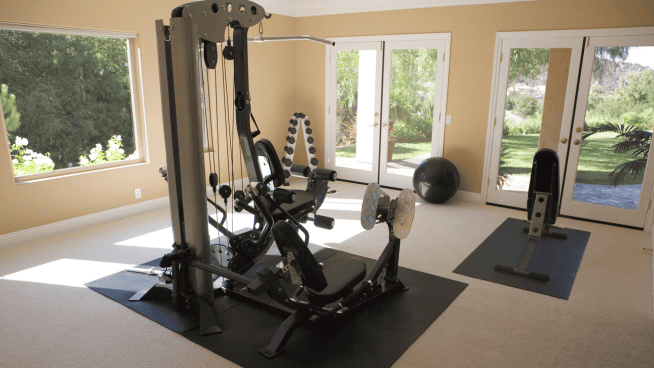Dick's Sporting Goods PACE Program Helps With Concussion Education and Prevention
Concussions are serious business. If improperly treated, they can have long-term health consequences, put you on the disabled list or even end your athletic career.
Many pro athletes experience the effects of concussions. Doug Flutie, a former NFL QB famous for his Boston College Hail Mary Pass, was particularly unfortunate during his football career. “I had three major concussions [and] I had short-term memory loss,” he says. “There were two of them where I didn’t remember anything for about an hour.”
In fact, while playing for San Diego, Flutie suffered the effects of a concussion for nearly an entire season. Yet, he still played. “It was the way you were brought up and [our] mentality,” he says, “but now you realize how stupid that was.”
To prevent young athletes from making the same mistakes, Flutie is endorsing the Dick’s Sporting Goods PACE (Protecting Athletes through Concussion Education) program.
The program’s goal is to give middle school and high school athletes access to baseline testing, which is designed to measure mental capacity, reaction time and other brain functions. If a concussion is sustained, new test scores are compared to the baseline results to ensure brain function is fully restored. “After a concussion, they won’t allow you back on the field until your test scores are within the same range as your baseline scores,” Flutie says. “It’s a way to measure progress and know when you’re ready to get back on the field.”
Through PACE, up to one million athletes from 3,300 schools in the United States will have access to ImPACT baseline testing for one year. According to ImPACT, the program “is the first; most widely used; and most scientifically validated computerized concussion evaluation system.”
“The IMPACT software has been used in the NFL and collegiate level,” Flutie adds. “This is an opportunity to get that same testing for middle school and high school athletes, so they can get measured and ensure that concussions are properly diagnosed.”
Although the PACE program is an important step in the effort to protect young athletes, it’s still up to each athlete to tell his or her coach or parents about an injury. “The biggest advice I can give you is to be honest with your coach and parents about how you feel,” Flutie advises. “Every athlete wants to be on the field, but let them know even if you have only a minor headache.”
To register your school to receive the ImPACT baseline testing software, visit mydickssportinggoods.com/pace/.
Want to learn more about this topic? Read our in-depth coverage on concussions, including prevention and recovery.
Photo: Riedel/AP
RECOMMENDED FOR YOU
Dick's Sporting Goods PACE Program Helps With Concussion Education and Prevention
Concussions are serious business. If improperly treated, they can have long-term health consequences, put you on the disabled list or even end your athletic career.
Many pro athletes experience the effects of concussions. Doug Flutie, a former NFL QB famous for his Boston College Hail Mary Pass, was particularly unfortunate during his football career. “I had three major concussions [and] I had short-term memory loss,” he says. “There were two of them where I didn’t remember anything for about an hour.”
In fact, while playing for San Diego, Flutie suffered the effects of a concussion for nearly an entire season. Yet, he still played. “It was the way you were brought up and [our] mentality,” he says, “but now you realize how stupid that was.”
To prevent young athletes from making the same mistakes, Flutie is endorsing the Dick’s Sporting Goods PACE (Protecting Athletes through Concussion Education) program.
The program’s goal is to give middle school and high school athletes access to baseline testing, which is designed to measure mental capacity, reaction time and other brain functions. If a concussion is sustained, new test scores are compared to the baseline results to ensure brain function is fully restored. “After a concussion, they won’t allow you back on the field until your test scores are within the same range as your baseline scores,” Flutie says. “It’s a way to measure progress and know when you’re ready to get back on the field.”
Through PACE, up to one million athletes from 3,300 schools in the United States will have access to ImPACT baseline testing for one year. According to ImPACT, the program “is the first; most widely used; and most scientifically validated computerized concussion evaluation system.”
“The IMPACT software has been used in the NFL and collegiate level,” Flutie adds. “This is an opportunity to get that same testing for middle school and high school athletes, so they can get measured and ensure that concussions are properly diagnosed.”
Although the PACE program is an important step in the effort to protect young athletes, it’s still up to each athlete to tell his or her coach or parents about an injury. “The biggest advice I can give you is to be honest with your coach and parents about how you feel,” Flutie advises. “Every athlete wants to be on the field, but let them know even if you have only a minor headache.”
To register your school to receive the ImPACT baseline testing software, visit mydickssportinggoods.com/pace/.
Want to learn more about this topic? Read our in-depth coverage on concussions, including prevention and recovery.
Photo: Riedel/AP











